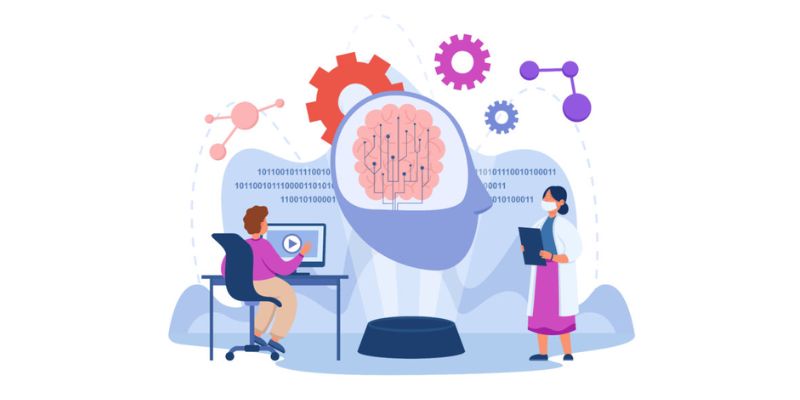The Impact of Technology on Privacy: Securing Your Digital Life in 2024
In 2024, The impact of technology on privacy and security in 2024 hits close to home. It’s real, it’s now, and it’s changing how we guard our private lives. We dive deep into the rise of digital privacy concerns, from online identity theft to social media safety nets. Tech leaps forward, and with it, threats to our digital shadows grow sharper. As we decode the murky waters of cybersecurity and AI surveillance, learn how quantum computing shifts the cryptography landscape while we tackle the tricky balance of facial recognition ethics. Your personal data is your treasure, and amid tech breakthroughs, we explore how to lock it down tight. Discover how biometric defenses meet IoT risks and how blockchain tech shapes our privacy battleground. Plus, we arm you with cutting-edge privacy-enhancing technologies, boosting your defense against data breaches while evolving encryption standards ensure your digital fortress remains unbreachable in 2024.
The Rise of Digital Privacy Concerns in 2024
Understanding the Surge in Online Identity Theft
Online identity theft is growing. Why? More people shop and bank online now. This makes lots of personal information available on the internet. Thieves use this info to steal identities. They open bank accounts or apply for credit with someone else’s name. Scary, right? In 2024, online identity theft statistics are rising. Cybersecurity trends show we must act to protect ourselves.
So, how do we fight back? We use stronger passwords and two-factor authentication. We also need to stay aware of phishing attacks. Phishing is when trick emails make you share private info. Always check who emails come from and never click on strange links.
Kids must learn about these risks, too. Protecting children online in 2024 is key. They use the internet for school and fun but may not know the dangers. Teach them to be safe and keep their information private.
Facilitating a Safer Social Media Experience
Now, let’s talk about social media privacy. We all use apps like Facebook and Twitter. But did you know they collect a lot of our data? Yes, they do! What we like, share, and who we talk to – they track it all.
In 2024, social media privacy policies are getting more attention. People want better control over their info. Tech innovations and user privacy must balance out.
To stay safe on social media, check your privacy settings. Make sure your posts are not shared with everyone. Be careful with what info you post. Once it’s online, it’s hard to take back.
Remember, new tech like facial recognition has ethical issues. They can track you using your face! Always know if an app uses this and think before saying okay.
Lastly, always update your apps. Updates often have better security to protect your data. This way, you stay ahead of thieves and enjoy social media without worry.
By staying informed and using the right tools, we can all enjoy the web safely. We can share, chat, and shop without fear in 2024. Be smart online and take care of your digital life!

Advancements in Cybersecurity and AI Surveillance
Leveraging Quantum Computing for Enhanced Cryptography
We live in times where our every click matters. Every day, there’s news of hacks and data leaks. It’s scary but true. Imagine having a lock so strong, no one can break it. That’s what quantum computing offers for keeping our digital lives safe. Quantum computing uses the power of atoms to process tasks way faster than regular computers. This speed makes it perfect for creating tough encryption – the kind that keeps hackers at bay.
Right now, experts are working on quantum encryption methods. These methods turn our data into complex puzzles. It’s like turning your secret into a riddle that only the right key can solve. And guess what? That key is as unique as you, changing every time it’s used. Hackers will have to think twice, as cracking codes will get a whole lot tougher.
Remember hearing about credit card info being stolen? With quantum computing, such worries start to fade. Our personal info stays locked up with encryption that’s always several steps ahead. By using laws of physics, not just 0s and 1s, our digital privacy gets a shield like none other.
Regulation and Ethical Implications of Facial Recognition
Facial recognition sounds cool, right? Walk into a room, a camera knows you, and the lights turn on. But there’s more to it. With great tech comes big responsibility. As facial recognition grows, so do concerns about who’s watching and why. Are security cams in shops just tracking thieves, or are they tracking you too?
In 2024, countries are stepping up their game. They make laws to protect us from eyes that shouldn’t be prying. These laws are all about control. Who can use facial recognition? How should it be used? And most importantly, how do we keep innocent people from being wrongly watched or accused?
Ethics play a big part here. Just because we can watch doesn’t mean we should. The tech should help, not hurt. It’s about keeping you safe, not invading your life. Companies must show that they’re using this tech wisely. And if they cross the line, they answer to the law.
Biometric data, that’s your face, your finger scans, they’re personal. They should belong to you and be used to protect you. We’re making sure they’re not misused by setting these boundaries. It’s a balance between enjoying tech and keeping our private lives, well, private.
Think about it. Your face unlocking your phone is handy. But the same tech finding you in a crowd without your OK? That’s not right. Laws help make sure that we keep that balance, so we can use cool tech without losing our freedom.
In 2024, cybersecurity isn’t just a buzzword. It’s our digital armor. With quantum computing and smarter laws, our tech will serve us, not spy on us. Your digital life is yours, and that’s how it should stay, safe and secure.

Safeguarding Personal Data Amidst Tech Innovations
Biometric Data Protection and IoT Security Challenges
We share more data than ever before. Our face, voice, even how we walk, now unlock phones and doors. These are our biometrics. Strong biometric data protection is critical. Hackers thirst for such personal details. We must guard against biometric data breaches by using smart, secure practices.
Internet of Things, or IoT, adds to this challenge. Our homes teem with smart gadgets. They learn our habits and control daily tasks. Yet, these devices can leak secrets if we don’t secure them. Each gadget must have strong defenses to keep our private lives safe. We must stay ahead of smart home vulnerabilities.
Balancing Blockchain Advantages with Privacy Needs
Blockchain shines as a tool for secure transactions. Yet, it also raises digital privacy questions for 2024. Its records are tough to alter, which is good for security. But what about privacy? If details of our lives get etched in blockchain, can we ever erase them?
We need to find middle ground. Use blockchain to protect our deals and assets, but also keep our right to privacy. This balance is key in a future where tech evolves fast. We look to innovations like Quantum Computing and advancements in Cybersecurity to protect us. Yet, understanding these tools and using them right is up to us. Our privacy in 2024 hinges on this balance.
Empowering Users with Privacy-Enhancing Technologies
Utilizing PETs for Stronger Data Breach Responses
We share more info online than ever before. Data breaches happen, it’s a fact. But now, we’ve got privacy-enhancing technologies, or PETs, to fight back. PETs help keep your secrets safe. They give control over who sees what about you.
Here’s how it goes. Your info gets out there. Bad, right? But PETs step in. They spot the breach fast. They lock down data to stop thieves. Your personal stuff? It’s scrambled up—like a secret code. Only you and select folks can unlock it.
That’s not all. PETs are smart. They learn from each hack. They get better at stopping the next one. Think of PETs as your digital guard dogs, always watching over your info. Cypress Advanced Encryption Standard – AES-256 is an example of a PET. It encodes your files at a top-level security. The goal? So that no hacker can crack the code and swipe your data.

The Evolution of Encryption Standards in 2024
Encryption is a big deal in 2024. It’s like a secret language for your data. Only people with the key can read it. This keeps your pics, talks, and secrets safe online.
Back then, some codes were easy to crack. Bad news if you want to keep things private. Now, standards have shot up. Encryption in 2024? It’s tough—real tough. Think of a lock that only opens for you. That’s what we’re aiming for.
Strong encryption helps us all. It keeps our cards and chats safe. It can even stop people from spying on us. In 2024, the rules got tighter. New laws put our safety first. They said: your data is yours – it should stay that way.
Good encryption keeps your secrets safe, even if someone sneaks into your emails or files. With cyber attacks growing, we need the best locks on our digital lives. Strong encryption is the key.
Our online world keeps growing. We buy, talk, and play on our screens. With new encryption, we can do all that without worry. We can wear our tech and keep our secrets. We can connect our homes and stay safe. In 2024, we all get a say in who sees our digital lives. That’s power – and that’s thanks to stronger encryption.
Digital privacy is a big deal, and it’s getting bigger. We’ve looked at how identity theft is going up and ways to make social media safer. Tech is racing forward with things like quantum computing to lock down our details better and matching faces with pictures, which is cool but also a bit scary. We need to keep safe when our fridges and watches are online and talking to each other. Plus, blockchains are good for keeping things open but private too.
Still, it’s not all about fancy tech. It’s about you being in charge of your stuff. We’ve seen how to fight back against hackers and how encryption is changing this year. In the end, it’s clear we all need to smarten up about keeping our online lives to ourselves. Keep your eyes open, learn about these tools, and use them. That’s how we’ll stay one step ahead in the game of digital hide and seek.
Q&A :
How is technology expected to affect personal privacy in 2024?
With the perpetual evolution of technology, personal privacy will likely become more complex in 2024. The development of more sophisticated data gathering tools, such as IoT devices, could mean that personal information is increasingly collected, sometimes without explicit consent. This means an enhanced risk of personal data breaches unless countered by robust privacy-focused laws and innovative security solutions.
What are the emerging security threats due to technological advances in 2024?
Technological advances can pave the way for newer, more sophisticated cyber threats. By 2024, we may see the rise of AI-powered attacks that can learn and adapt, making them harder to detect and neutralize. Additionally, as more devices connect to the internet (IoT), the attack surface for potential breaches widens, necessitating advanced defense mechanisms to maintain security.
Can advancements in technology lead to better privacy and security protections in 2024?
It’s a double-edged sword; while technology can pose risks to privacy and security, it also provides solutions. In 2024, we can expect further advancements in encryption, anonymization tools, and secure communication protocols. Innovations such as blockchain could offer decentralized ways of protecting personal data, while AI could assist in detecting and responding to security incidents faster than ever before.
What role will government regulation play in tech privacy and security in 2024?
Government regulation is set to play a pivotal role in shaping the landscape of tech privacy and security in 2024. As technology continues to outpace current laws, new legislation will likely be introduced to address contemporary issues regarding data protection. Moreover, regulations like the GDPR may serve as a model for future laws to enhance individual privacy rights and define the responsibilities of tech companies.
How can individuals safeguard their privacy and security against technology in 2024?
Individuals can take proactive steps to safeguard their privacy and security despite the advancements in technology by staying informed about best practices for online behavior. This includes using strong, unique passwords, enabling two-factor authentication, being mindful of the permissions granted to apps, and keeping software up to date. Additionally, using privacy-focused tools and services can offer an added layer of protection.



